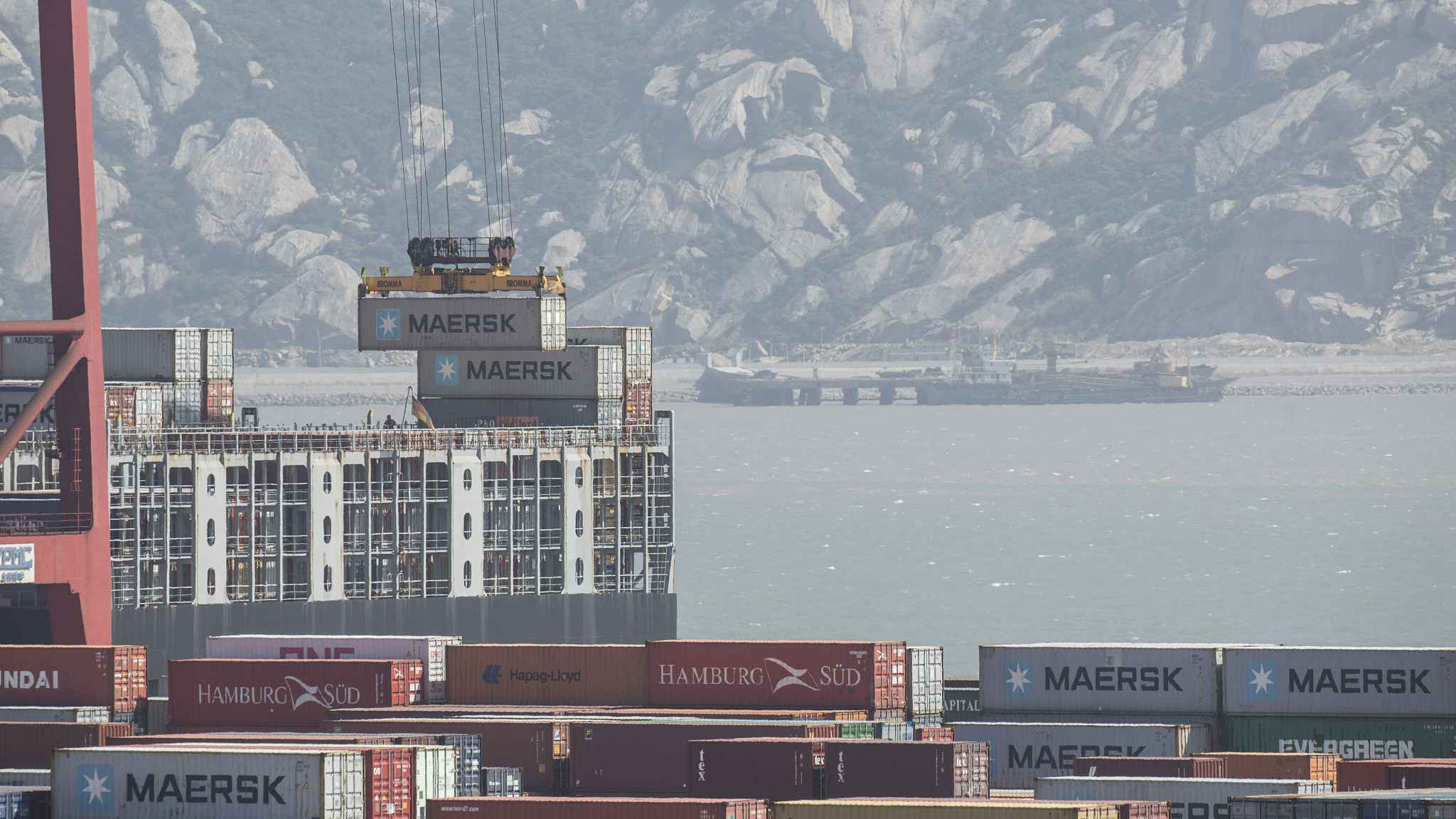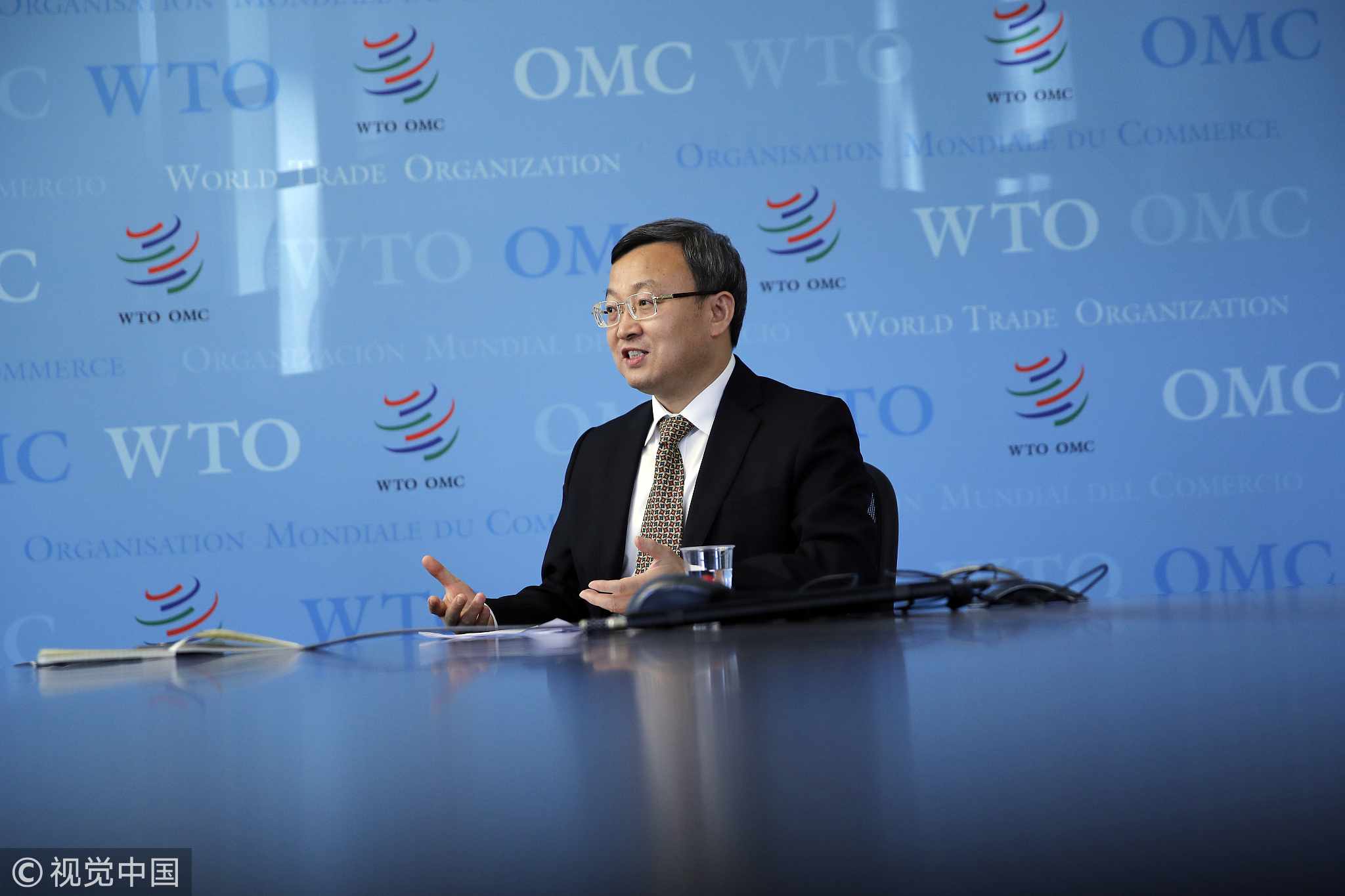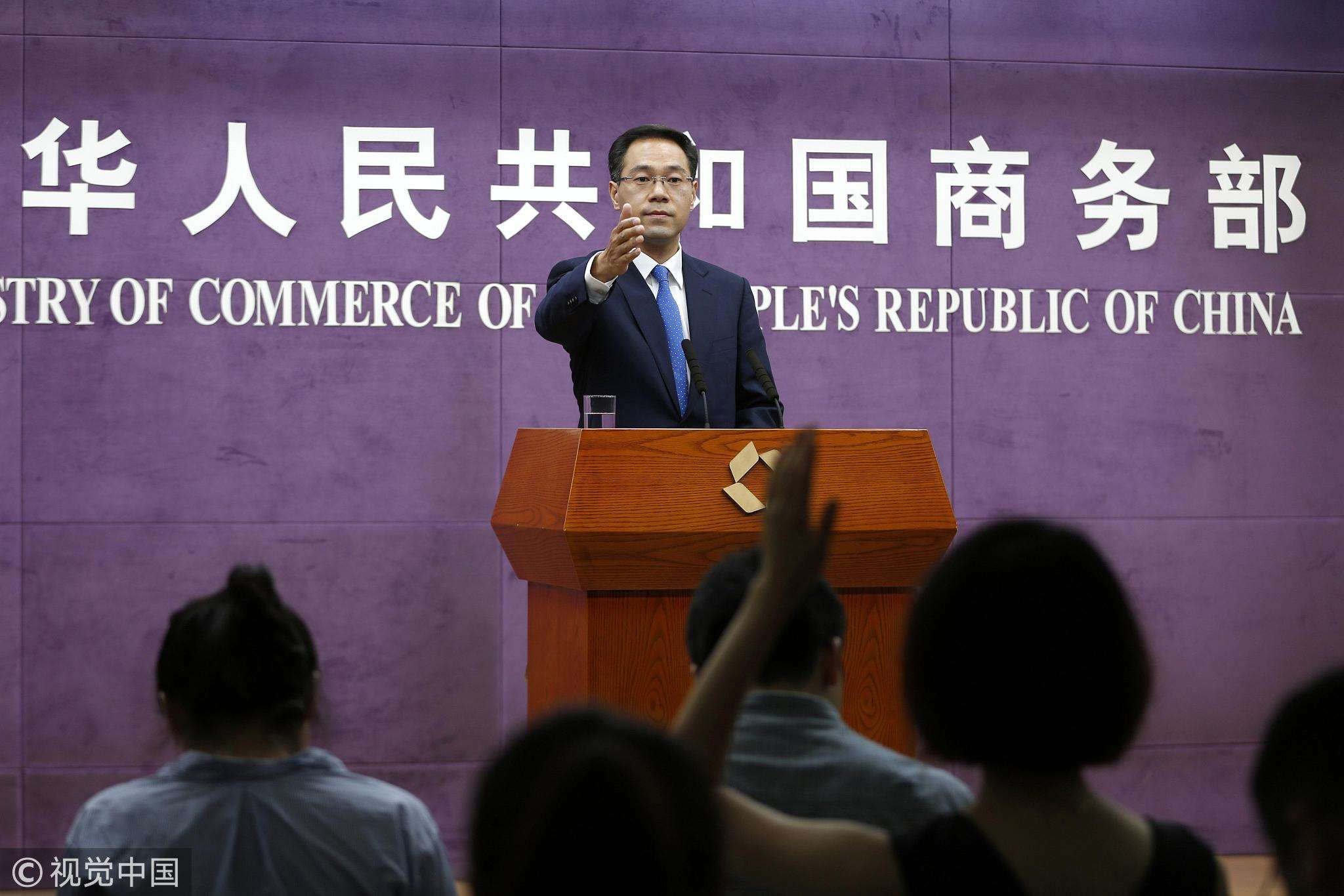
Opinions
21:30, 15-Jul-2018
Opinion: Trade War – an opportunity for China?
Updated
20:47, 18-Jul-2018
By Bai Xianyue

Editor's note: Bai Xianyue is the Managing Partner of Chenyi Law. The article reflects the author's opinion, and not necessarily the views of CGTN.
On 11 July 2018, US announced it is preparing another round of tariffs on Chinese goods worth $200 billion, marking a sharp escalation of the US-China trade row. It comes after the United States imposed 25% tariffs on Chinese goods worth $34 billion last Friday, to which Beijing immediately responded with its own tit-for-tat tariffs on US goods worth the same value.
Now a major war between the two biggest economies is declared. What will happen next? What could be the implications for China?
China's entry into the World Trade Organization (WTO) since 2001 enabled it to have become the world's second largest economy after 15 years of accession. Without any doubt, China has been one of the major beneficiaries of WTO membership and globalization. In the meantime, China is proud that it has made great contributions to WTO's multilateral trading system as well as to global economic growth.

Wang Shouwen, China's vice minister of commerce, gestures as he speaks during an interview at the World Trade Organization (WTO) headquarters in Geneva, Switzerland, July 11, 2018. /VCG Photo
Wang Shouwen, China's vice minister of commerce, gestures as he speaks during an interview at the World Trade Organization (WTO) headquarters in Geneva, Switzerland, July 11, 2018. /VCG Photo
However, the US has been closely monitoring the compliance by China under the WTO system ever since its accession. The official position of US is that United States erred in supporting China’s entry into the WTO on terms that have proven to be ineffective in securing China’s embrace of an open, market-oriented trade regime that upholds the principles of non-discrimination, market access, reciprocity, fairness and transparency as set forth under China’s Protocol of Accession.
The reality is that the WTO rules were not formulated with a state-dominated economy ever in mind and things have become much more sophisticated than 2001. There is no clear standard for the definition of a market-oriented economy. China has been an excellent player under the WTO labyrinth, taking advantage of the complex rules and its notorious inefficiency.
China, conscious of a history of humiliation by foreign powers in the past centuries, is cautious of being perceived as "weak" by its people when confronted by the US and has little choice but to fight back to defend its national core interest.
Given the wide gap between the value of Chinese exports to the US ($500 billion) and imports from the US ($300 billion), it is impractical for China to match tariffs by quantity. However, there are options for China to retaliate. The Chinese government does have an arsenal of weapons to inflict pain on the US economy.
Nonetheless, there are obvious constraints for China to take any such actions as an adverse consequence might follow. China is fully aware of the severe risk given the already slowing economy.
Brinkmanship is dangerous and potentially devastating. There is no perfect answer to the question of who has more to lose. Economically for the short term, an all-out trade war hurts China more than the US. But what happens next is much more complicated than economics itself.

July 5, 2018: Spokesman of China's Ministry of Commerce speaks at a regular press conference. /VCG Photo
July 5, 2018: Spokesman of China's Ministry of Commerce speaks at a regular press conference. /VCG Photo
It’s impossible for President Trump to witness a protracted conflict with China with the 2018 midterm elections around the corner. Meanwhile, unlike the US, there is no electorate pressure on China's side. China is no stranger to trade embargoes or isolation. Moreover, efficiency in decision-making and domestic consensus which is easily rallied makes China a much tougher opponent than it appears. Such factors should be considered even though they sometimes might be invisible – especially to US observers.
Nonetheless, China will have to face the music and make a hard decision soon if the trade row further deteriorates as the legitimacy conferred by economic prosperity and sustainable growth remains the cornerstone for China to maintain market confidence, rally national pride and achieve stability. There are strong voices inside China who advocate to jump-start the in-depth reform and further opening-up as they see it as a historical opportunity that cannot be missed, since the trade war exposes some weaknesses of China.
Furthermore, it will be in the best interest of China to review its trade practices and performance under the WTO which have been controversial and criticized by the US. China knows well it has to be prepared to embrace substantial changes sooner or later.
On the other hand, Trump administration is well aware all the tariffs measures are meant to bring China back to the table, not to its knees. Time is probably not on the US side. In any event, either the US or China will have to extend olive branch which might happen sooner than we expect.
China and the US are mutually complementary much more than competitive in many senses. Without close trade ties with the US, China could not have been the spectacular economic miracle it pulled off. China has to turn the trade war into an unprecedented opportunity to make hard choices to further reform and open up in order to embrace long-term prosperity and growth, even though it might mean pain and frustration now.

SITEMAP
Copyright © 2018 CGTN. Beijing ICP prepared NO.16065310-3
Copyright © 2018 CGTN. Beijing ICP prepared NO.16065310-3